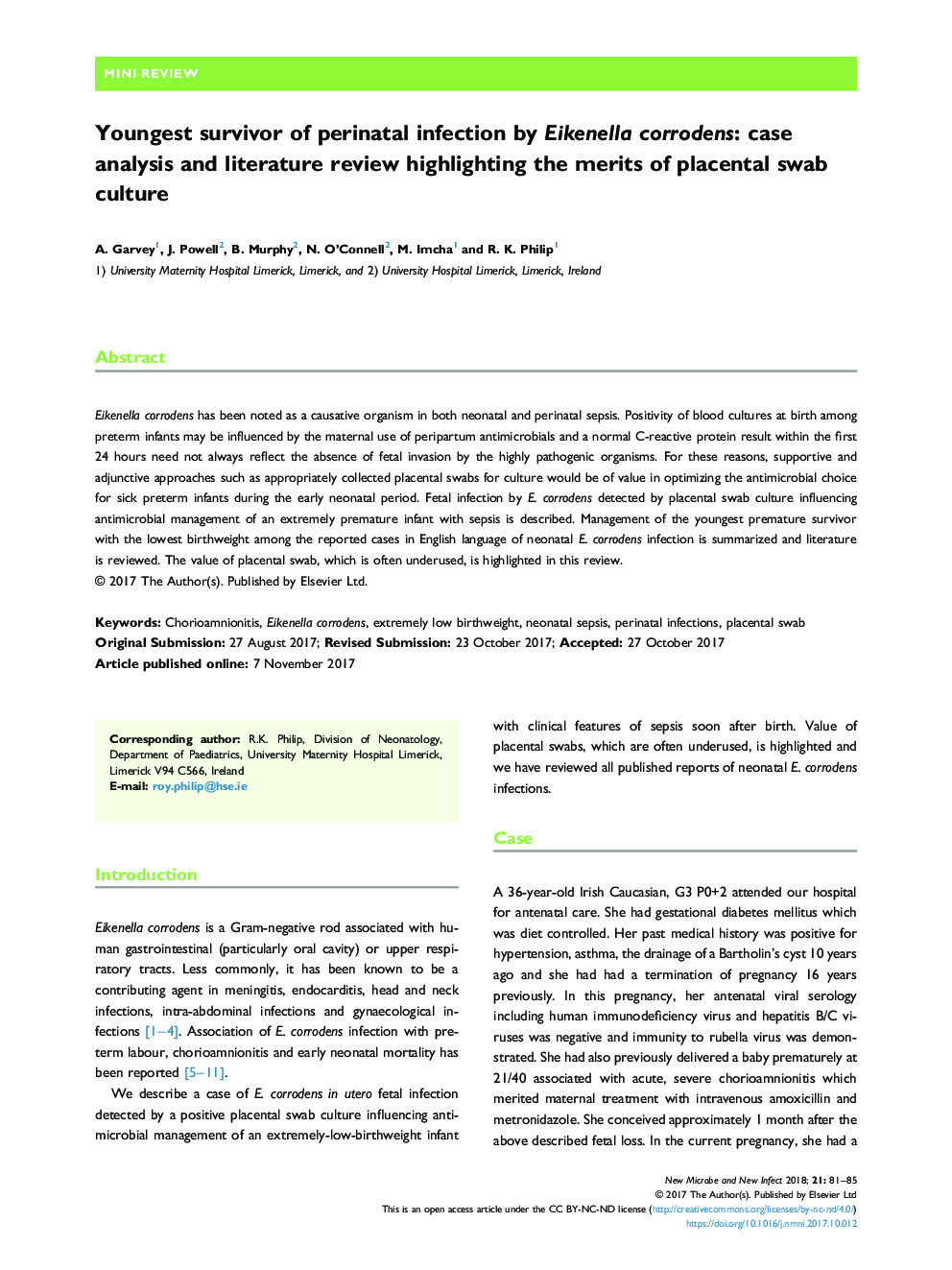| Article ID | Journal | Published Year | Pages | File Type |
|---|---|---|---|---|
| 8750190 | New Microbes and New Infections | 2018 | 5 Pages |
Abstract
Eikenella corrodens has been noted as a causative organism in both neonatal and perinatal sepsis. Positivity of blood cultures at birth among preterm infants may be influenced by the maternal use of peripartum antimicrobials and a normal C-reactive protein result within the first 24 hours need not always reflect the absence of fetal invasion by the highly pathogenic organisms. For these reasons, supportive and adjunctive approaches such as appropriately collected placental swabs for culture would be of value in optimizing the antimicrobial choice for sick preterm infants during the early neonatal period. Fetal infection by E. corrodens detected by placental swab culture influencing antimicrobial management of an extremely premature infant with sepsis is described. Management of the youngest premature survivor with the lowest birthweight among the reported cases in English language of neonatal E. corrodens infection is summarized and literature is reviewed. The value of placental swab, which is often underused, is highlighted in this review.
Keywords
Related Topics
Life Sciences
Immunology and Microbiology
Microbiology
Authors
A. Garvey, J. Powell, B. Murphy, N. O'Connell, M. Imcha, R.K. Philip,
